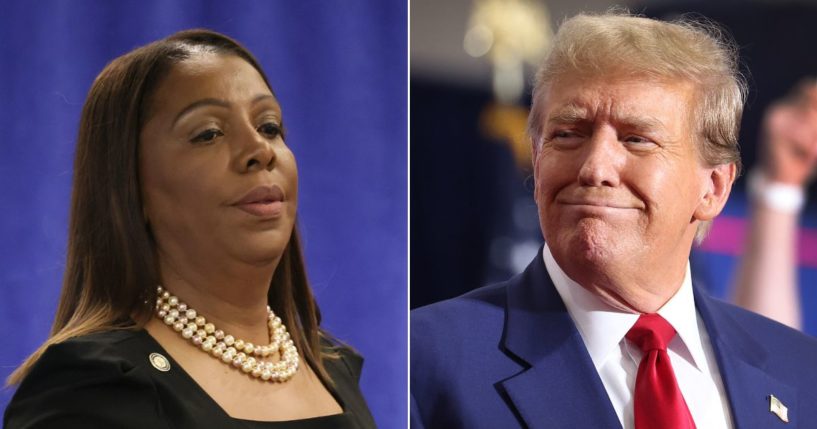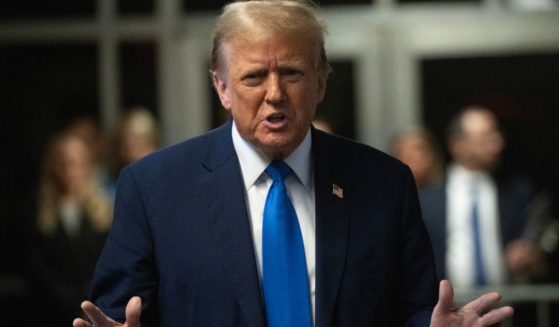Get the latest news delivered right to your email.
2024 Election
Top Stories
Advertisement
Claims Say OJ Simpson Was with Loved Ones During Last Moments; His Attorney Tells a Very Different Story
Despite claims that OJ Simpson was surrounded by loved ones when he died, his attorney has presented a starkly different account.
By Adelle Nazarian
April 22, 2024
Comment
MoreShare
Trump Kicks Off Trial Day with a Direct Accusation Against Biden
Former President Donald Trump says his trial "is a witch hunt, and it’s a shame, and it comes out of Washington."
By Jack Davis
April 22, 2024
Comment
MoreShare
NFL Owner Cuts Funding for Columbia University After Anti-Israel Protests - 'No Longer an Institution I Recognize'
As anti-Semitism runs wild at Columbia University, Patriots owner Robert Kraft says he will pull his donations from the school.
By Jack Davis
April 22, 2024
Comment
MoreShare
Wonder Woman Fights Two New Enemies in Latest Comic: Homemaking and Christianity
The new Wonder Woman comic draws outrage after putting the Bible and traditional values on the side of evil .
By Jack Davis
April 22, 2024
Comment
MoreShare
Watch: NBA Champ Goes on Race Rant, Says Journalist Isn't 'Black Media' After Praising Caitlin Clark
Jackson showed his true colors when he expected King to behave not as a journalist but as a black journalist.
By Michael Schwarz
April 22, 2024
Comment
MoreShare
Biden Files Lawsuit Against Gas Station Chain the Same Day He Was Mocked for Shuffling Into It
"We have attempted to work with the EEOC for nearly eight years to find common ground and resolve this dispute," the company said.
By George C. Upper III
April 22, 2024
Comment
MoreShare
Taylor Swift Faces Fury from Fans, Sparks Backlash Over 'All the Racists' Lyrics - 'So Many Things Wrong About This'
Taylor Swift, the reigning queen of pop superstardom, seems to have stepped into a controversy with lyrics from her new album.
By Joe Saunders
April 22, 2024
Comment
MoreShare
Legal Expert Says Alvin Bragg's First Choice of Witness in Trump Trial Is Very 'Telling'
District Attorney Alvin Bragg's first witness choice in former President Donald Trump's criminal trial is taking heat.
By Samuel Short
April 22, 2024
Comment
MoreShare
Advertisement
The Left Is Wrong: Trans Suicides Surge Following 'Gender-Affirming' Surgeries, Study Shows
The left loves to claim that "gender-affirming care" saves lives. Here's the reality.
Comment
MoreShare
America Celebrates 249 Years of Rebellion Against Tyrants - Why We Must Remember Lexington & Concord
As Ronald Reagan said, there is nowhere left to run. We must restore our founding principles and reignite the American Dream.
Comment
MoreShare
The Left Is Wrong About Negative Human Impact on Climate
The rising level of CO2 in the atmosphere is a natural — not man-made — phenomenon, according to a top scientist.
Comment
MoreShare
Advertisement
































